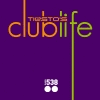Npr: On Words With John Ciardi
Science & Medicine
Ever wondered where this word or that phrase comes from? The late poet laureate John Ciardi uncovers historical interpretations in this series from the Morning Edition archives. (Author: NPR)
| Subscribe | Subscribe via iTunes™ |
| Author | NPR |
| Feed | http://www.npr.org/rss/podcast.php?id=4986368&uid=n1qe4e85742c986fdb81d2d38ffa0d5d53 |
| Site | http://www.npr.org/podcasts |
| Badge |

|
Recent episodes from Npr: On Words With John Ciardi
-
Published: Aug 7, 07Is it beyond the limits of any known sense that the word "pyramid" derives from Greek soldiers' descriptions of the Egyptian monuments as "wheat cakes"? Idiom investigator John Ciardi takes a look.
-
Published: Aug 7, 07How do the definitions of words slip and slide into something entirely different? Word wrangler John Ciardi explains how "buxom" went from meaning "obedient" to something ... quite different.
-
Published: Aug 7, 07What does it mean, exactly, to be "knocked into a cocked hat"? For that matter, what is the origin of the Shakespearean turn of phrase "there's the rub"? Two unrelated figures of speech, originating from sports idiom, are explained by wordsmith John Ciardi.
-
Published: Aug 7, 07Etymologist and poet John Ciardi revisits the idiom of his youth to uncover the myriad ways in which Italian-descended people infused American English with their own "paisani" ingenuity.
-
Published: Aug 7, 07One can trace, as poet/historian John Ciardi does, the word "rhombus" back through its Latin and Greek origins. But to do so would be futile without acknowledging the relevance of a once-common childhood toy.
-
Published: Aug 7, 07In this week's pick from the word garden, etymologist John Ciardi explains how "folk word formations" occur in the least-expected ways, and result in some of the most beautiful -- and unfortunate -- nomenclature seen in any language.
-
Published: Aug 7, 07"Billion" is, in amateur numerologist John Ciardi's reckoning, "a word that seems to have been born confused." He zeroes in on the numerical discrepancies that may cause further confusion for those venturing to the other side of the Atlantic.
-
Published: Aug 7, 07John Ciardi traces the illustrious history of his own last name, from its roots as a German surname through Longbeard detours, twisted with a sound shift or two. Let's do him a favor and pronounce his name correctly.
-
Published: Aug 7, 07Where does our traditional image of the pirate flag come from, if there is no recorded history of its actual use? John Ciardi dons an eyepatch and peg leg to find out whether the skull-and-crossbones emblem was really just counterfeit.
-
Published: Aug 7, 07Poet and semantic swordsman John Ciardi resurrects another expression from the vaults of time and memory -- "to fight like Kilkenny cats" -- and applies this dueling simile to a word whose history is not as harmonious as it seems.
-
Published: Aug 7, 07Bacon, or its variants, appears in a number of common British idioms, but none is so important to civil society, apparently, as the "dunmow flitch," according to etymologist and carnivore John Ciardi. He traces the history of this phrase, as well as its implications for his own matrimonial bliss.
-
Published: Aug 7, 07The long and storied history of the name "Siwash" is detailed in this installment, from its origins as a French term of not-so-endearment to common adjective to collegial cheer. As John Ciardi amply demonstrates, tracing the path of a word over time can be like following the trail of a log through a winding, treacherous skid road.
-
Published: Aug 7, 07When John Ciardi isn't exploring the fossilized remnants of words, he is either dredging up new uses for old ones or coining his own neologisms. Witness "coprolite," a little-used term he dusts off for modern, metaphorical usage. Or "kelemenopy," an alphabetical oddity our word wizard creates out of thin air. Yet both strangely fill a vacuum in a way only the most useful words can.
-
Published: Aug 7, 07What's in a name? When it comes to products on the market, suggests John Ciardi, it may boil down to whatever sells. Whether it's the "Hudson seal" coat made from an imaginary animal, or "German silver tableware" that is neither German nor silver, savvy advertisers have used language not just to inform but also to mislead.
-
Published: Aug 7, 07This week's segment answers a profound question for the ages: Was John Ciardi a male chauvinist? Our dogged didacticist ponders the hypothetical origins of a phrase, "leading apes in hell," that has traditionally been used in the context of the longest-running conflict of all time: the battle of the sexes.
Advertisement
Popular Podcasts
-
Health
-
Music
-
Sports & Recreation
-
Health
-
News
-
Sports & Recreation
-
Music
-
Music













